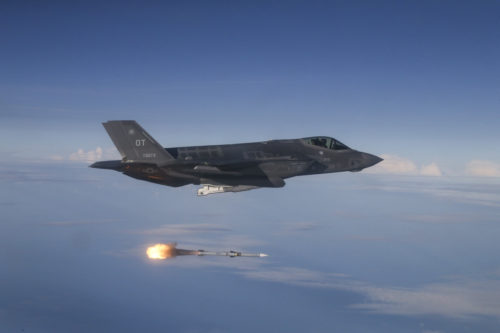The U.S. State Department has approved a significant Foreign Military Sale to Japan, involving the acquisition of 1,200 Advanced Medium-Range Air-to-Air Missiles (AMRAAMs). The deal, estimated at a staggering $3.64 billion, includes both the AIM-120D-3 and AIM-120C-8 variants. This potential sale was officially communicated to Congress by the Defense Security Cooperation Agency on Jan. 2.

The Japanese government’s request includes not only the missiles themselves, but also a substantial package of supporting equipment and services. The request specifically mentions up to 20 AIM-120D-3 guidance sections and four AIM-120C-8 guidance sections, featuring precise positioning technology via Selective Availability Anti-Spoofing Module or M-Code. The deal also encompasses AMRAAM propulsion sections, warheads, Captive Air Training Missiles (CATM), missile containers, control section spares, and Common Munitions Built-in Test (BIT) Reprogramming Equipment (CMBRE). Furthermore, the sale includes ADU-891 Adaptor Group Test Sets, munitions support and support equipment, spare parts, consumables, accessories, repair and return support, classified software delivery, classified publications, technical documentation, transportation, studies, warranties, and both US Government and contractor engineering, technical, and logistical support.
The rationale behind this sale is to enhance Japan’s ability to counter current and future threats and defend both its homeland and U.S. personnel stationed there. The U.S. government views this sale as a crucial step in bolstering a key ally in a region of strategic importance, noting that it will improve Japan’s security and its role as a force for political stability and economic progress in the Indo-Pacific. It is also assessed that Japan will have no issues integrating these new systems into their armed forces.
The principal contractor for this massive undertaking is RTX Corporation, based in Tucson, Arizona. There are no known offset agreements linked to this sale. The implementation of this agreement will not require additional U.S. government or contractor personnel in Japan, and is not expected to negatively impact U.S. defense readiness. It’s worth noting that the $3.64 billion figure is a high-end estimate; the final cost is likely to fluctuate depending on final requirements, budget authority, and any sales agreements.
For more information, hit the Source below